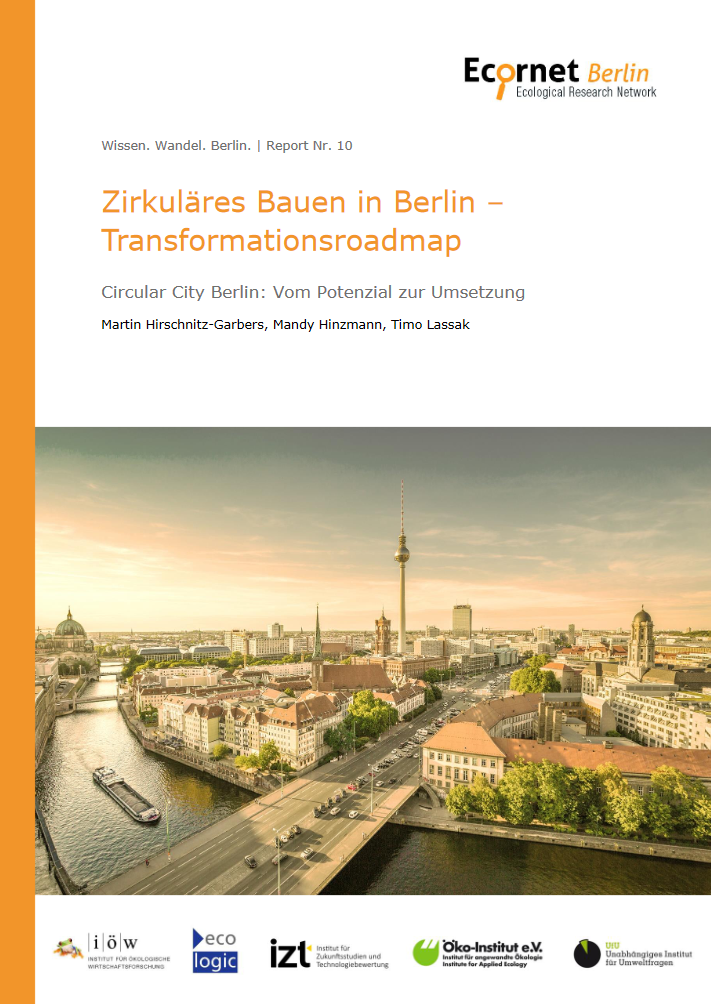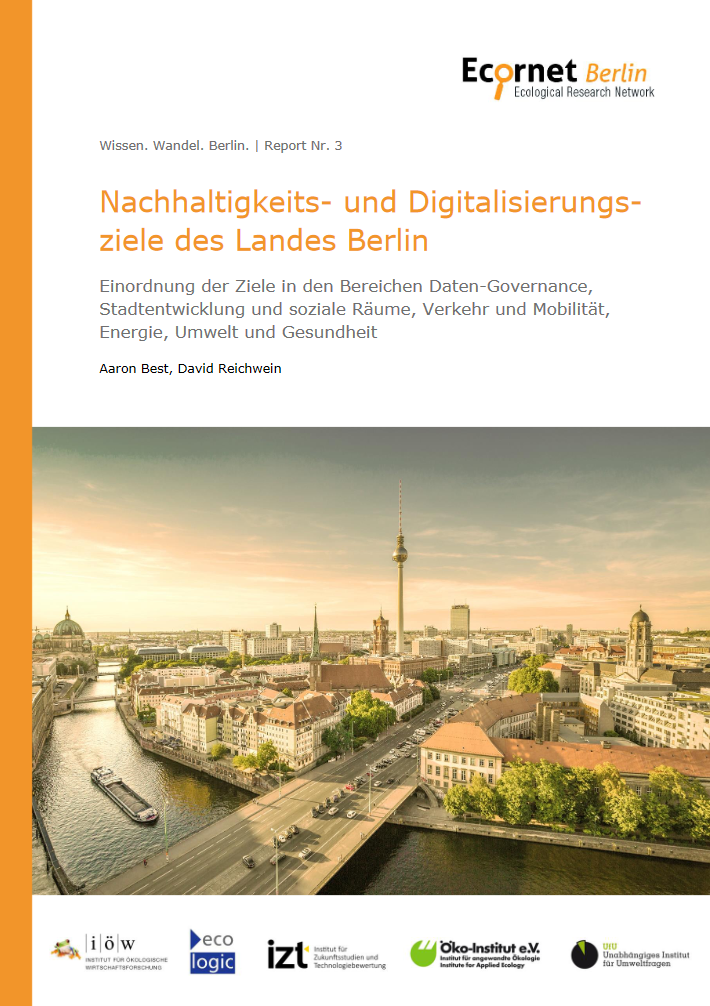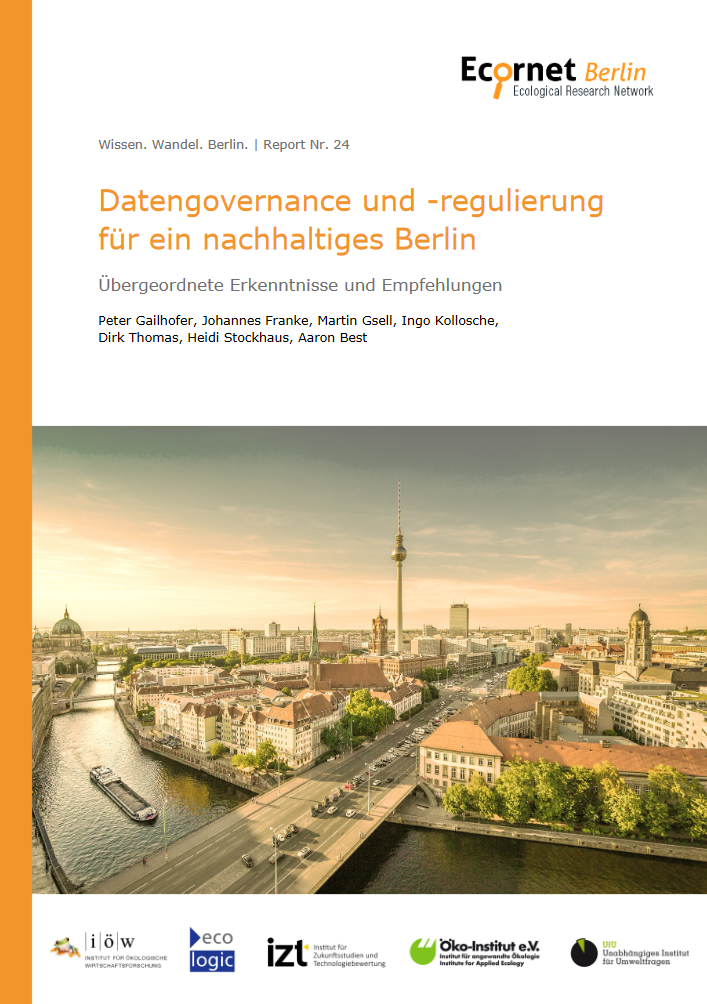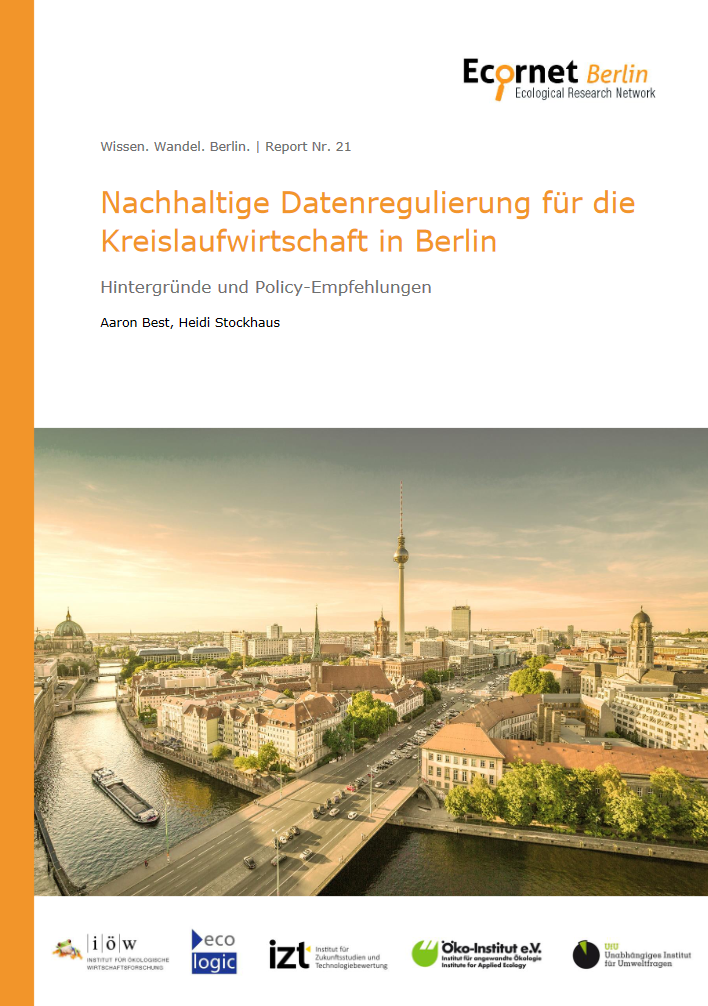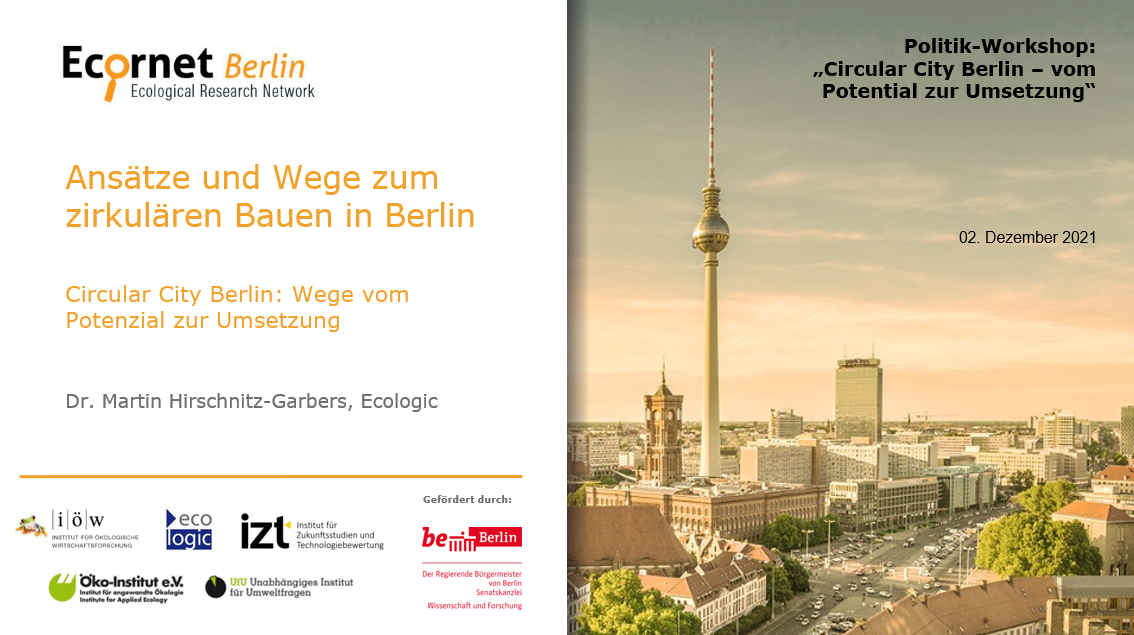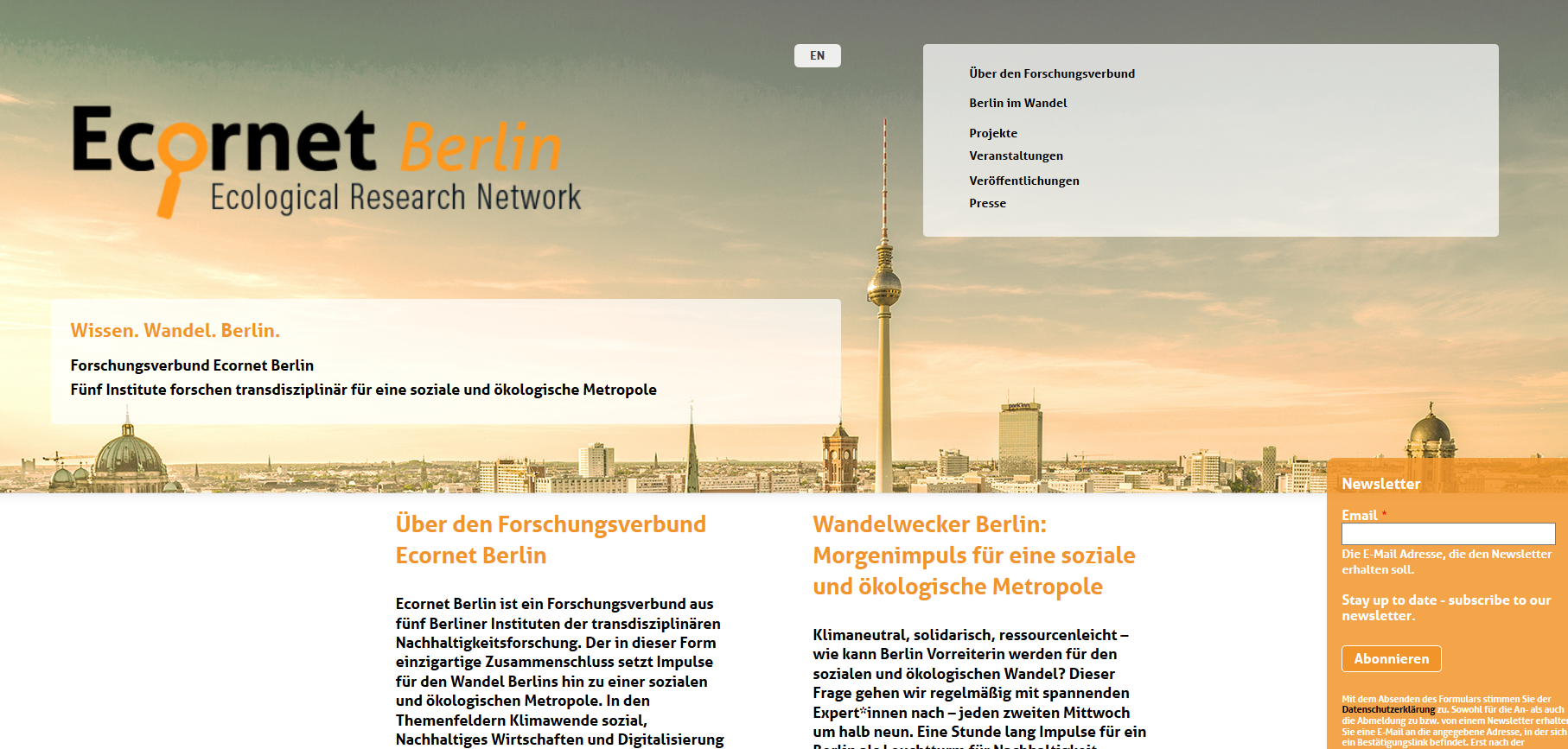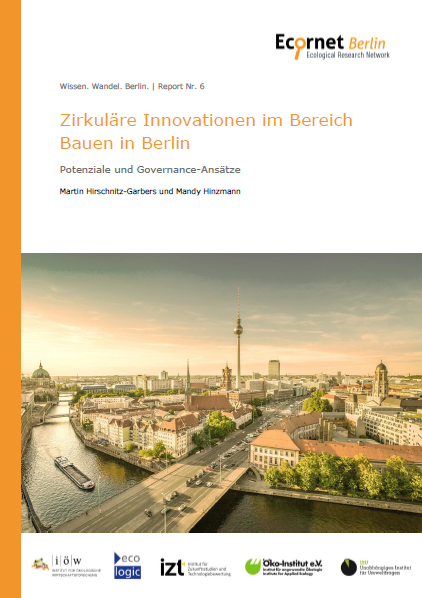In the project "Knowledge. Transformation. Berlin.", the Ecornet Berlin research network pursued the goal of expanding Berlin's pioneering role in innovative approaches for a liveable, climate-neutral and resource-efficient city. Therefore, the research network focused on the existing strengths and diversity of Berlin, but also on the existing ecological and social challenges. The goal was to expand Berlin's pioneering role in the development of innovative approaches in an innovative way. To this end, the associated institutes worked on several projects in the thematic fields of social climate transformation, sustainable economies and digitalization.
Social climate transformation
To ensure that Berlin can achieve its goal of climate neutrality, it is central that emissions are reduced in a way that enables all people in Berlin – regardless of income or social position in society – to participate in a socially acceptable and equitable manner. With its work, the research network aimed to support Berlin in achieving this through scientific analysis and concept development.
In the project ElectricityNeighbours, Ecologic Institute investigated how the regulatory framework for tenant electricity can be further developed. Based on scientific analyses, options for action are developed for political decision-makers, but also for service providers and for companies in this field. Together with practitioners, the research team elaborated on the experience gained so far in the implementation of tenant electricity in Berlin, outlined technical innovation potentials and identified options for the further development of the regulatory framework. One focus of the analysis was the distributional effects of the investigated use cases, especially the economic impact on low-income households.
Sustainable economies
The present-day climate and biodiversity crisis, as well as social problems, have been to a large extent caused by our consumption, lifestyle and economic practices of recent decades. Together with practitioners, the research network investigated alternative economic approaches that meet the requirements of sustainable development. The goal was to concretely test approaches of alternative economies and circular business models in pilot implementations.
The Institute for Futures Studies and Technology Assessment, Öko-Institut, Ecologic Institute and Institute for Ecological Economy Research investigated how urban resource flows can be made sustainable in the long term in the project "Circular City Berlin – From potential towards implementation (CiBER 1)". They analyzed and promote innovative approaches to the circular economy in different sectors of Berlin.
Digitalization
The megatrend of digitalization is transforming the economy, society and politics, and ultimately the entire planet. Despite long-standing knowledge of these transformative forces, the socio-ecological impacts and interactions of new technologies and their political, economic and societal implications have only been studied for a few years. By scientifically researching regulatory options for action, the research network aimed to support policymakers in setting the legal policy course necessary to achieve their sustainability goals.
In the project "Data Governance and Regulation for a Sustainable Berlin", Ecologic Institute and its partner institutes analyzed which forms of data regulation are possible and necessary at the level of the city of Berlin to ensure that data-driven services, products and platforms are developed and used in line with social and ecological sustainability goals.
Knowledge communication
The transdisciplinary research projects of the network involved practitioners in order to include their knowledge in the research and to discuss preliminary results with them with regard to their practicability in practice. Knowledge communication and transfer are understood as a strategic process, which on the one hand makes an important contribution to the dissemination of the results of the research network and on the other hand has an impact on the transdisciplinary research projects through discursive elements.
In order to communicate in a goal-oriented manner with the respective target groups in the city, Ecologic Institute developed a comprehensive, target group-specific communication concept, a cross-network, bilingual website and newsletter, as well as its own social media presence. In addition, Ecologic Institute was responsible for the planning and implementation of several project-specific events.




